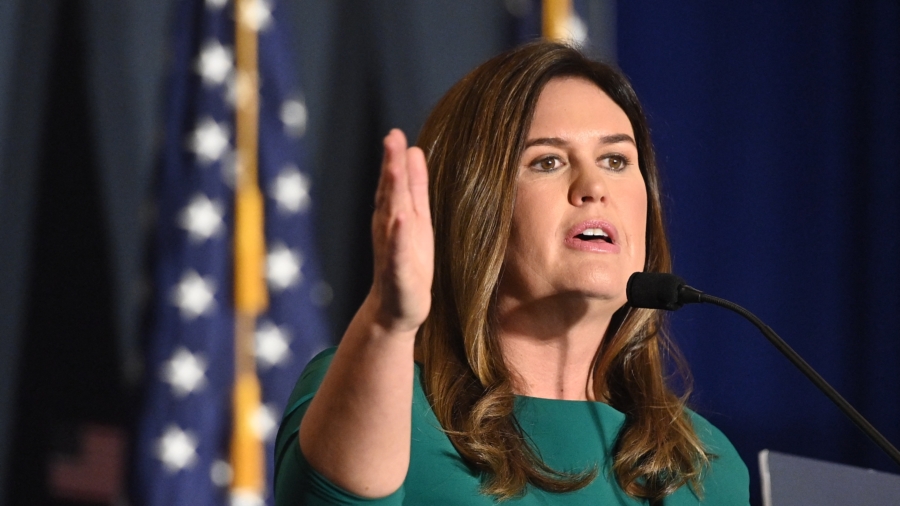Arkansas on Wednesday became the second state to restrict social media use by children, as Gov. Sarah Huckabee Sanders approved legislation requiring minors to get their parent’s permission to create a new account.
The bill signed by the Republican governor requires social media companies to contract with third-party vendors to perform age verification checks on new users.
The law will take effect in September and apply only to new accounts created after that date.
“While social media can be a great tool and a wonderful resource, it can have a massive negative impact on our kids,” Gov. Sanders said.
Under the new Arkansas law, social media companies found guilty of knowingly violating the age verification requirement face a $2,500 fine per case.
The age restrictions only apply to social media platforms that generate annual revenue over $100 million and does not include all social media platforms. Notably, Google, LinkedIn, and YouTube are exempt.
The law expressly prohibits third-party vendors from retaining identifying information of users after they’ve been granted access to the social media site.
The new regulation is similar to the one Utah Gov. Spencer Cox signed last month, a first-in-the-nation law to require a parent or guardian’s explicit consent before a child can create accounts on apps such as Instagram, Facebook, and TikTok.
Utah’s bill further stipulates a social media curfew blocking children’s access between 11:30 p.m. and 6:30 a.m. unless parents allow otherwise. The new law will take effect in March 2024.
Several other states are considering similar measures, citing the protection of children as their primary concern.
The legislation concerning age restriction has drawn criticism from opponents who say the rules could raise new privacy concerns. In contrast, others claim that it could exacerbate the mental health crisis among young people.
The Electronic Frontier Foundation (EFF), a nonprofit that defends civil liberties in the digital world, strongly disagrees with online age verification mandates.
“Age verification laws don’t just impact young people. It’s necessary to confirm the age of all website visitors, in order to keep out one select age group,” Jason Kelly and Adam Schwartz, respectively director and assistant director of the EFF, wrote on their website.
“Once information is shared to verify age, there’s no way for a website visitor to be certain that the data they’re handing over is not going to be retained and used by the website, or further shared or even sold,” the website explains.
“If a website misuses or mishandles the data, the visitor might never find out,” the EFF said, fearing third party verifications services “could be fly-by-night companies with no published privacy standards.”
AP contributed to this article.

